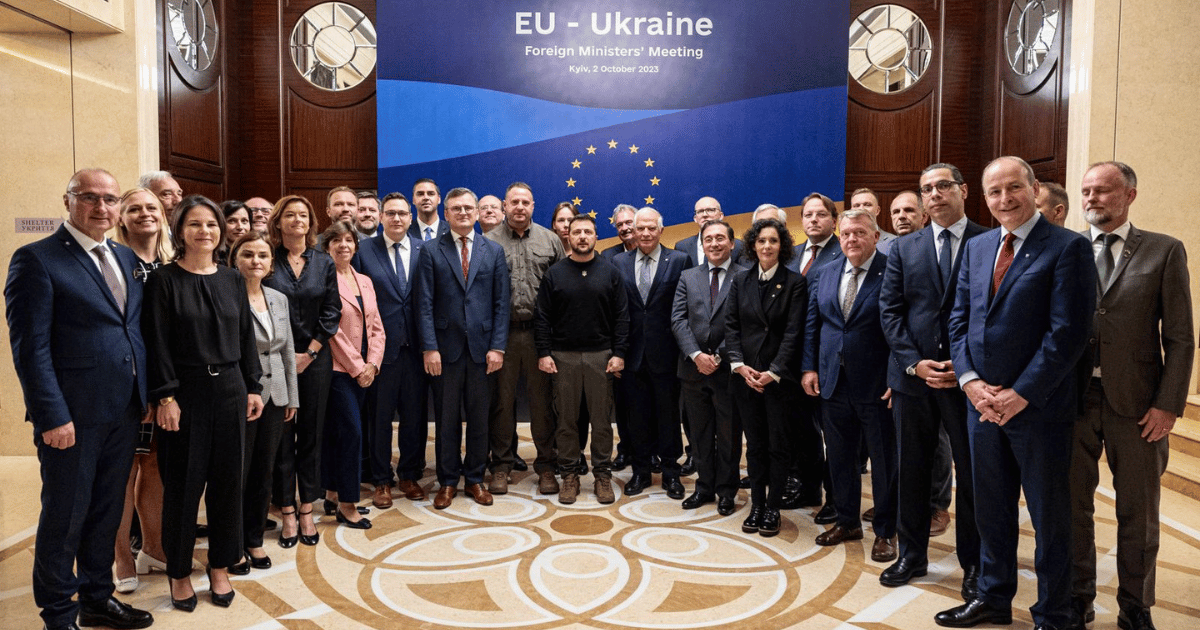In an unannounced visit to the Ukrainian capital, Kyiv, a delegation of European Union (EU) foreign ministers demonstrated a united front in their support for Ukraine amidst rising concerns and criticisms over the long-term commitment of the EU and the United States. The visit comes as the conflict between Ukraine and Russia enters its 20th month.
EU foreign policy chief Josep Borrell emphasized the bloc’s unwavering support for Ukraine, stating, “The EU remains united in its support to Ukraine. I don’t see any member state folding on their engagement.” He described the meeting as “historic,” marking the first time EU foreign ministers had convened in a candidate country and a country at war.
Ukrainian President Volodymyr Zelenskyy, addressing the EU foreign ministers, stressed the importance of international cooperation in determining the duration of the conflict. He urged the EU to expand sanctions on Russia and Iran, the latter of which has supplied attack drones to Russian forces. Additionally, Zelenskyy called for the acceleration of efforts to direct frozen Russian assets to finance Ukraine’s restoration.
The gathering in Kyiv occurred amid growing signs of fragmentation within Western support for Ukraine. In the United States, right-wing conservatives have become increasingly vocal in their criticisms of assistance to Ukraine. Moreover, a recent election in Slovakia saw a victory for a pro-Russia party, adding to concerns about the unity of support for Ukraine within the European region.
Hungarian Prime Minister Viktor Orban’s recent criticisms of Kyiv, as well as hesitations regarding Sweden’s accession to NATO, highlight the delicate balance of European alliances in the face of the ongoing conflict. Countries in the Global South have also grown wary, grappling with the economic repercussions of the war and hesitating to take sides between the West and Russia.
As the war continues, supporters of Ukraine express concerns that governments and voters may lose interest in the conflict, potentially leading to a reduction in commitments to provide essential military and economic support.
However, despite the emerging criticisms and concerns, both the EU and the US maintain substantial support for Ukraine, with President Joe Biden emphasizing bipartisan backing for assistance. While challenges and divisions persist, the international community remains committed to supporting Ukraine in its struggle against Russian aggression.






